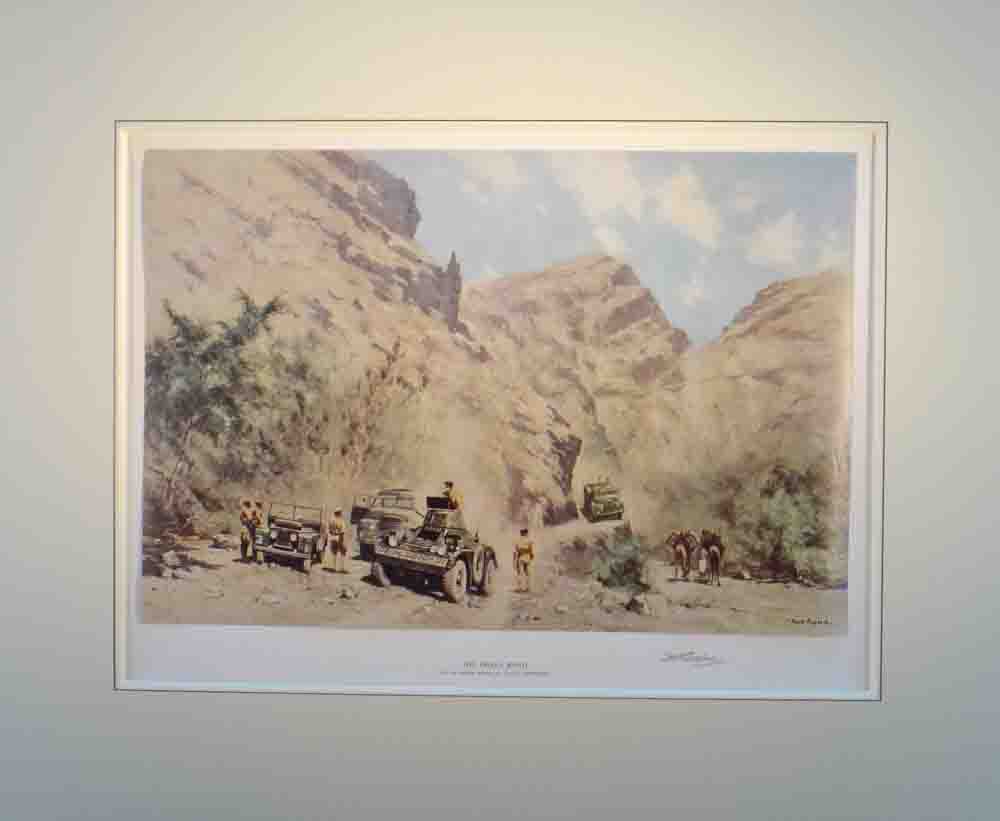Dhal Road
David Shepherd

The Dhala Road.
Complete with french bound mount
Signed in pencil
Image Size 20" x 13.5"
Overall size with mount 29" x 24"
The group of tribes ruled over by the Amir of Dhala occupies the district north-west of the Alawi country on the high road to Sanaa.
The ancestors of the dynasty said to have been Muwallads, or half caste slaves of the Imams of Sanaa, and to have established themselves as independent at Dhala about the beginning of the 19th century.
On the death in 1872 of the then Amir, Shafal bin Abdul Hadi, his nephew, Ali bin Muqbil, was recognised by the British Government as his successor.
In the following year he was required by the Turkish authorities to make his submission to the Porte, a Turkish Superintendent was appointed to Dhala,
a detachment of Turkish troops was quartered there, and the Amir was required to give a hostage for his good behaviour, who was to reside at Taiz.
He was afterwards summoned by the Turks to Qataba and imprisoned there, but effected his escape.
Muhammad bin Musaid, who had been appointed Amir by the Turks in the place of his nephew Ali bin Muqbil, was killed, and his son, Abdulla bin Muhammad, was recognised by them as his successor.
He continued to resist Ali bin Muqbil till 1878, when, Turkish support having been withdrawn from his rival,
Ali bin Muqbil resumed his position as Amir of the tribes, with the loss, however, of several of his villages which had, some voluntarily and some under pressure, yielded allegiance to the Ottomans.
In 1880 the Amir signed an agreement by which he became a British stipendiary, receiving 50 dollars a year. This allowance was afterwards doubled.